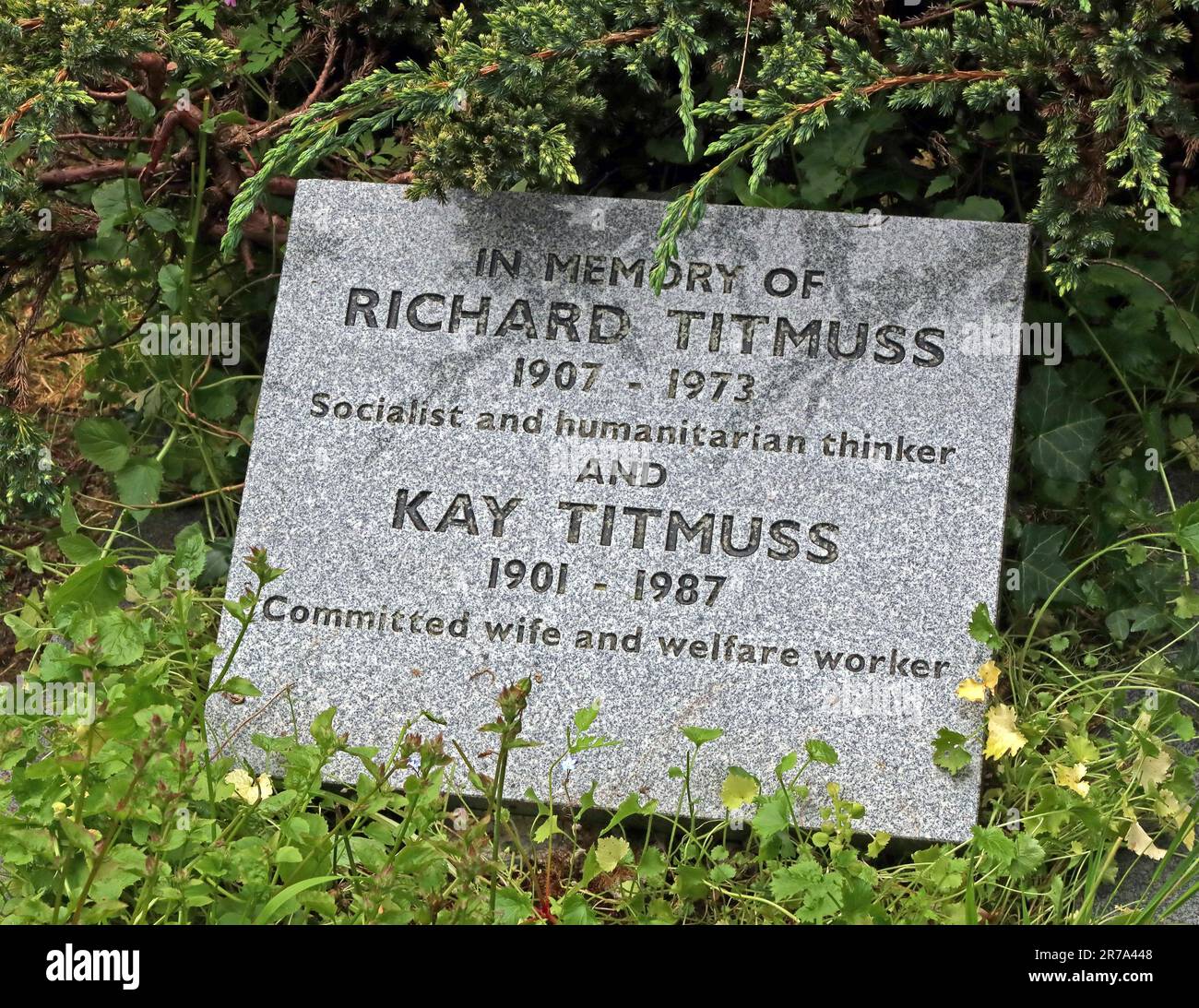Grave of Richard Titmuss, Kay Titmuss,1907-1973 Socialist & humanitarian thinker, buried in Highgate Cemetery, London, Swain's Lane, N6 6PJ

Image details
Contributor:
Tony Smith / Alamy Stock PhotoImage ID:
2R7A448File size:
49.3 MB (3.5 MB Compressed download)Releases:
Model - no | Property - noDo I need a release?Dimensions:
4728 x 3648 px | 40 x 30.9 cm | 15.8 x 12.2 inches | 300dpiDate taken:
19 May 2023Location:
Highgate Cemetery, Swain's Lane, London, England, UK, N6 6PJMore information:
Richard Morris Titmuss CBE FBA (1907–1973) was a pioneering British social researcher and teacher. He founded the academic discipline of social administration (now largely known in universities as social policy) and held the founding chair in the subject at the London School of Economics. His books and articles of the 1950s helped to define the characteristics of Britain's post World War II welfare state and of a universal welfare society, in ways that parallel the contributions of Alva Myrdal and Gunnar Myrdal in Sweden. He is honoured in the Richard Titmuss Chair in Social Policy at the LSE, which is currently held by Julian Le Grand. Titmuss's association with eugenics extended beyond the British Eugenics Society, to encompass other personal and intellectual connections. He is also honoured by the annual Richard Titmuss Memorial Lecture in the Paul Baerwald School of Social Work at the Hebrew University of Jerusalem, Israel. At the LSE, where he was the first professor of Social Administration, he transformed the teaching of social work and social workers and established Social Policy as an academic discipline. He also contributed to a number of government committees on the health service and social policy. He also did some consulting in Africa, sometimes together with Professor Brian Abel-Smith, who was later his successor in his chair. His concerns focused especially on issues of social justice. His final and perhaps the most important book, The Gift Relationship expressed his own philosophy of altruism in social and health policy and, like much of his work, emphasized his preference for the values of public service over private or commercial forms of care. The book was influential and resulted in a study of the blood bank systems, specifically with regard to regulation on the private blood market exchange. President Nixon called for a complete study of the lack of coordination within the system only months following publication of Titmuss' findings.